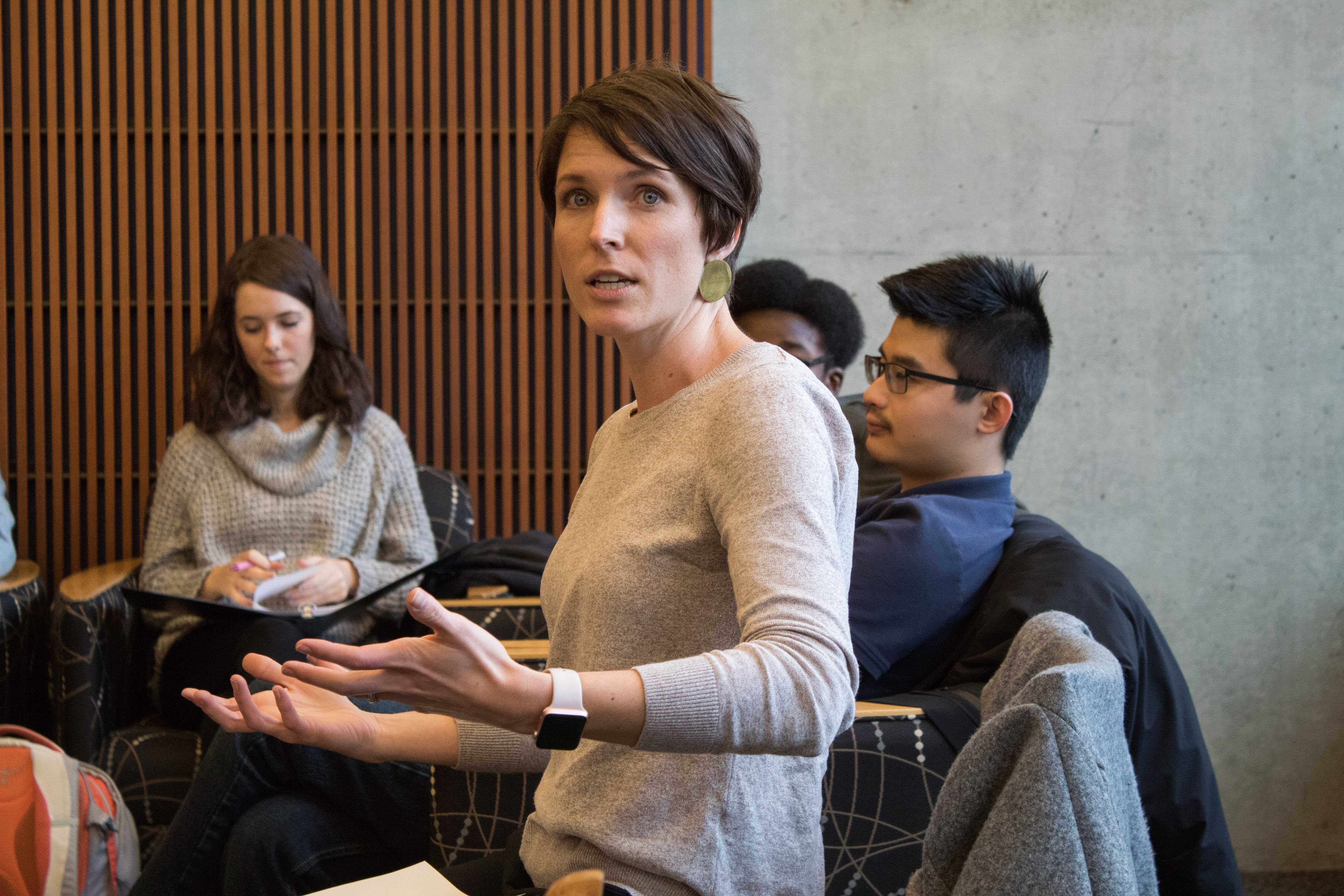
“News and Nachos” provides context
ISIS, Brexit, science, the trade war with China.
These are just a few of the issues one is guaranteed to find in the news today, each as controversial and complex as the next.
These issues also happen to be the topics for News and Nachos, a series of discussions and snacks sponsored by the Seattle Pacific History Department.
The goal of these discussions is to engage both students and faculty in conversations that look at current events through a historical lens — employing the past as an agent to develop a better understanding of the present.
“We wanted to find new ways to help people see the relevance of history for understanding the world we live in today,” wrote Dr. Alissa Walter in an email to The Falcon after hosting the first News and Nachos discussion last Thursday, Jan. 17.
“You know that saying — ‘Those who don’t know history are doomed to repeat it’? I try to impress upon my students that we can study the past in order to inform how we approach similar challenges in our own lifetimes.”
When introducing the series on Thursday to a group of students and professors, Walter brought up the questions that plague all of those who strive to be politically and socially up-to-date: where does one get the news and how does one stay responsibly informed?
Her audience listened intently, whilst munching on chips and salsa, as she presented practical tips for understanding the news, like reading BBC News, and explained the motivation behind the “News and Nachos” series.
“We are a campus committed to ‘engaging the culture’ and ‘changing the world,’ but we saw that there was a real desire on the parts of students, faculty and staff to be more knowledgeable about the political, economic and social changes we witness taking place all around us,” Walter wrote.
The discussion led by Walter on Thursday centered around the topic of The Islamic State, also known as ISIS.
As a historian of modern Iraq, Walter began by laying a comprehensive historical foundation of the Islamic State before addressing the present status of the issues at hand.
By doing so, Walter was able to explain not only the military and political components of the conflict, but the psychological and intellectual as well.
Walter did not occupy the spotlight for long, however, since the event is designed to be a discussion. Instead, she asked the attendees to divide into small groups to work through a discussion question together, while she floated to different groups to push the conversations along.
The question encouraged participants to draw connections from the relationship between religion, power and politics in the Middle East to that in the United States — and the Christian church.
Throughout the discussion, students and faculty used Walter’s insights in order to inform them on the complex issues surrounding ISIS and apply that learning within their own contexts.
“It’s hard to make sense of current events in real time. By providing a space for thoughtful, informed conversations about the news with historians who deeply understand the subject matter, we hope to perform a service for the campus and contribute in a new way to the intellectual life of the broader SPU community,” Walter said.














































































